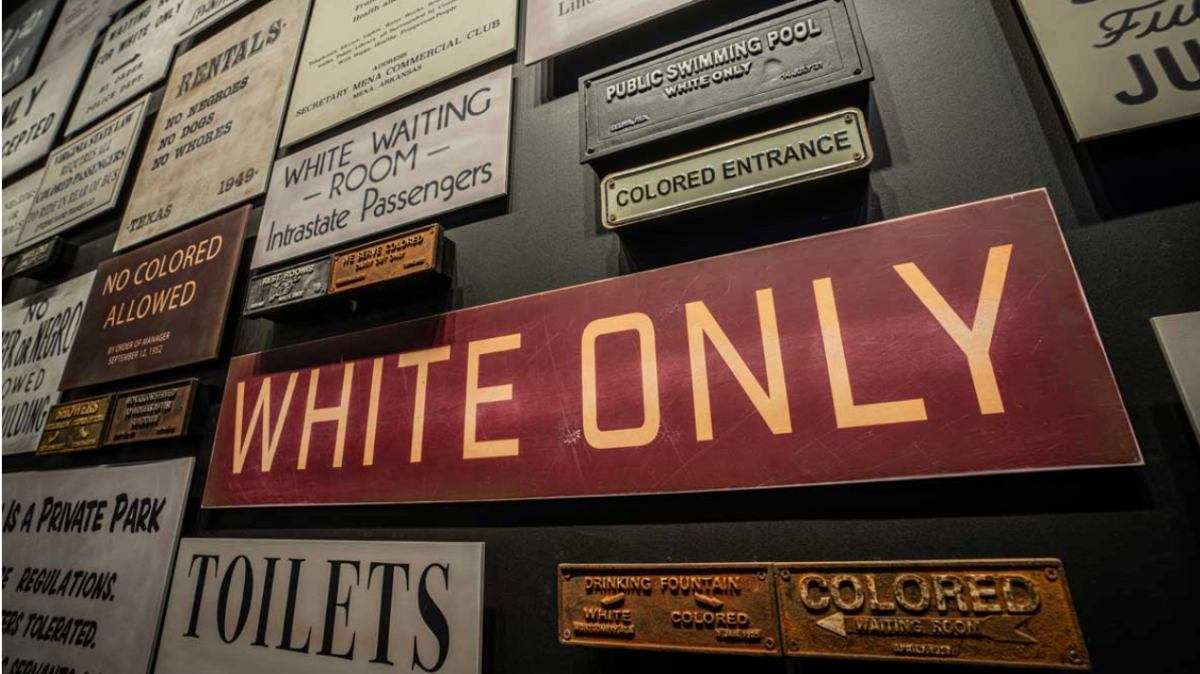In Washington Post reporter Jay Mathews’ column on the school’s treatment of race in the curriculum, he wrote, “I consider [WIS] one of the best schools in the country, but even it struggles with this.” Four years later, the school is introducing its first-ever civil rights trip: a four-day tour through cities in Alabama and Georgia for its IB History students.
WIS’s treatment of race has previously been criticized by both students and former faculty on the now-deleted Instagram account black@wis. The account shared anonymous statements from students and alumni about racism they’ve faced at WIS and problems with racial education.
The WIS administration has made several changes since Mathews’ article, from community handbook clauses prohibiting the use of racial slurs to a thorough examination of classroom textbooks. Still, the upcoming civil rights trip marks a sizable addition to WIS’s racial education.
The new trip, organized by IB History teachers Nora Brennan and Don Boehm, hopes to give students a firsthand look into the civil rights movement and supplement the information they are learning in the classroom. “I think it’s important for students to realize that history is not just stuck in the past and forgotten,” Brennan said. “There can be something really powerful about having that experiential component.”
When planning the trip, Brennan found it challenging to balance the “developments in the civil rights movement we wanted to highlight in conjunction with what would be feasible for a trip.”
The itinerary was finalized in December 2022. Starting on March 2, the group will fly into Atlanta, Georgia and swiftly make their way to Montgomery, Alabama, where they will first visit the National Memorial for Peace and Justice and The Legacy Museum.

The memorial “is the nation’s first memorial dedicated to the legacy of enslaved Black people, people terrorized by lynching, African Americans humiliated by racial segregation and Jim Crow and people of color burdened with contemporary presumptions of guilt and police violence,” according to the Equal Justice Initiative (EJI)’s website.
The Legacy Museum encompasses exhibits on Black history, from enslavement in the 19th century to mass incarceration starting in the 1970s. “The museum and memorial are part of EJI’s work to advance truth and reconciliation around race in America and to more honestly confront the legacy of slavery, lynching and segregation,” according to the museum’s website.
These topics are all studied through WIS’s high school curriculum. 10th graders study slavery and the American Civil War, 12th graders study the Jim Crow South and both study the civil rights movement.
Montgomery is also the site of the 1955 bus boycotts, in which activists protested the arrest of Rosa Parks for refusing to give up her bus seat to a white man. These protests led to the integration of the Montgomery bus system, a historical win for civil rights activists.
The tour through Montgomery complements an anthology studied by WIS’s IB English Higher Level (HL) students: “On the Bus With Rosa Parks” by poet Rita Dove. Grade 12 students who take both IB History and IB English HL will be able to draw connections between their classes during the trip.
One of the anthology’s poems, “Rosa,” describes how Parks protested the bus’ racial segregation. “Doing nothing was the doing: / the clean flame of her gaze / carved by a camera flash,” Dove writes. “How she stood up / when they bent down to retrieve / her purse. That courtesy.”
The intersection between WIS’s History and English Literature classes continues in Selma, Alabama, where the students will visit the Edmund Pettus Bridge. Led by John Lewis and Hosea Williams in 1965, 600 civil rights activists marched on the bridge, a day later known as “Bloody Sunday,” and were attacked with tear gas and bullwhips by police officers.
WIS students study the graphic novel “March,” co-written by Lewis, in eighth grade, which outlines these same events. “I think any meaningful academic study can see the intersection of how literature illuminates history and how the historical context would help one understand literature,” Brennan said.
The trip, concluding on March 6, will meld WIS’s interdisciplinary studies of race in the U.S. with the benefits of experiential learning. “I am happy to offer this experience to mitigate the thought that the Black experience is not as important in U.S. history because, to me, I think the Black experience is what has driven American history,” Brennan said.
By Abigail Bown

































































